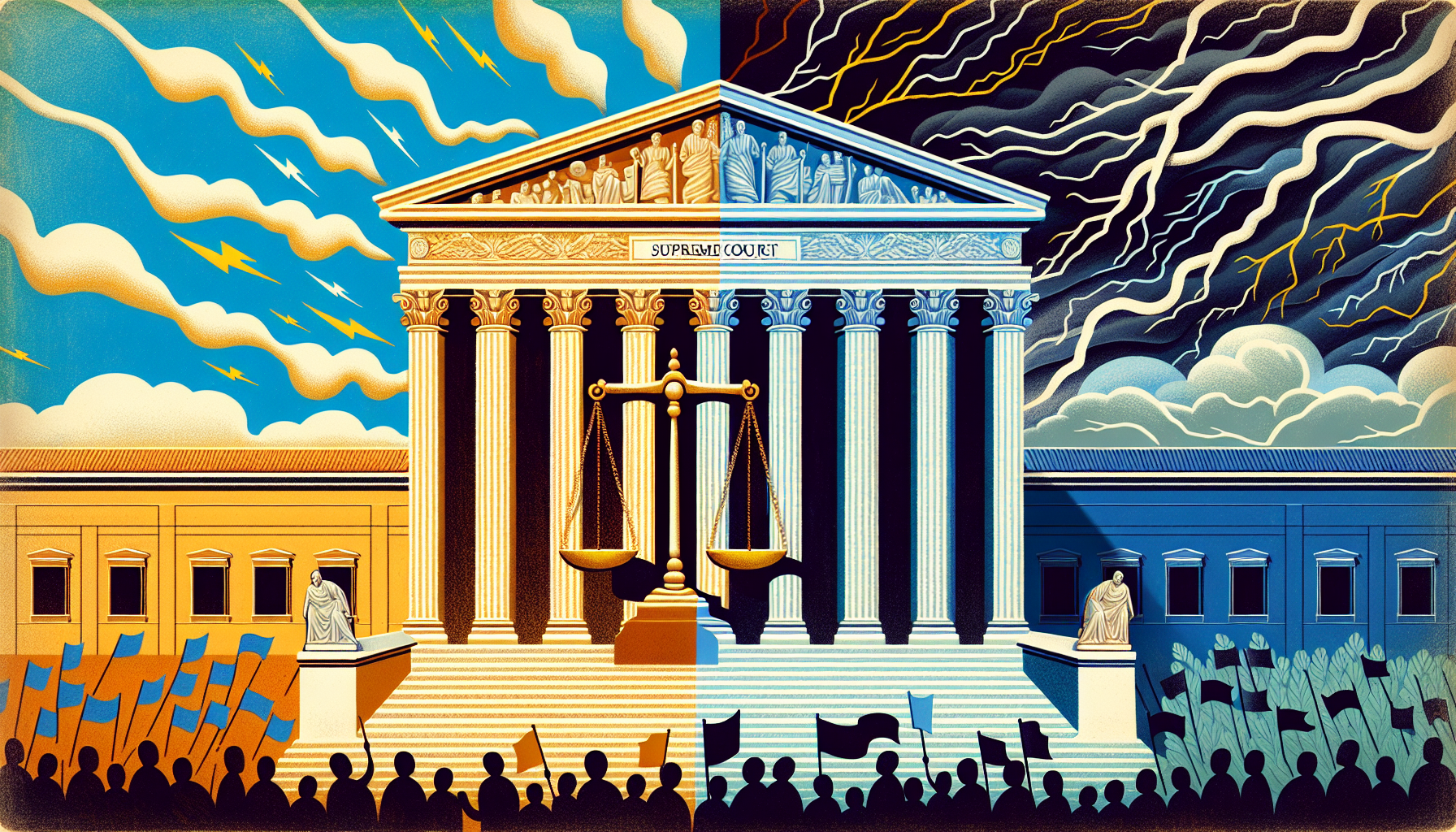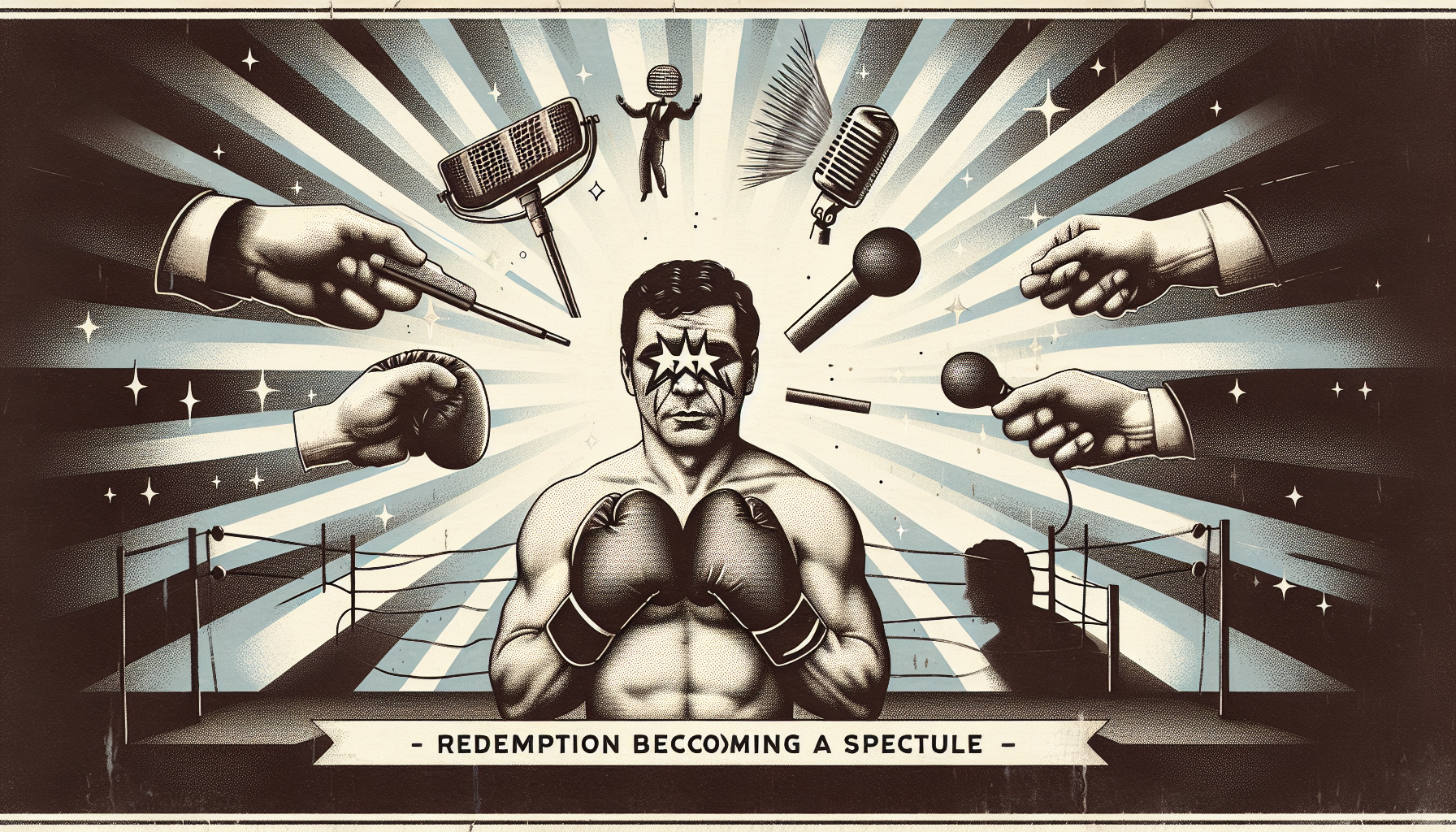Title: The Gavel's Echo: Trump's Supreme Court Triumph and Its Resonating Impact
Dear Readers,
In the world of politics, there are tectonic shifts—moments that do more than make headlines; they redefine the landscapes of power and governance. What unfolds today is one such recalibration, as echoed through the oak-paneled corridors of the Supreme Court.
Enter Donald Trump.
On a remarkable June 2025 morning, in the spotlight of a scrutinizing world, the Supreme Court amplified Trump's reach in an act that puts a new spotlight on executive power. In essence, the scales of checks and balances received a conspicuous tilt, aligning more closely with executive ambitions than ever before.
Let's peel back the layers of what this means—not just in the political arena, but for the very fabric of democratic principles.
The Ripple Effect of a "Monumental" Decision
On Friday, President Donald Trump stood before the press with a triumphant glow, his demeanor buoyed by a Supreme Court ruling that potentially broadens presidential power over lower court constraints. This decision, hailed as a "monumental victory" by Trump, doesn't just embolden him—it rewrites a longstanding script about judicial checks on executive commands.
At the core of this judicial pivot is Trump's contentious push to end birthright citizenship—a move now given a temporary green light, sparking potential for widespread changes in other stretched-thin areas of policy grapples.
But let's pause here.
Because this is not merely about immigration orders or a president enjoying bolstered authority. It's about the precedents being quietly set and the ripple effects felt by future presidents—Republican or Democrat alike.
A New Context for Birthright Citizenship
Consider the task ahead: the administratively Herculean shift Trump's order demands. Upending decades of automatic birthright citizenship challenges not just logistical norms but philosophical ones too. Justice Amy Coney Barrett's writing opens legal pathways for states to challenge and adapt these shifts—foreshadowing a battleground for rights defined by land and lineage.
One can almost hear the murmurings of past Constitutional debates echoing as states gear up for a complex legal ballet, challenging Trump's vision of migratory and citizenship norms.
A Legal Milestone with Broad Horizons
This court ruling does more than just unlock a controversial executive order; it symbolizes a broader legal milestone. It constrains lower courts from wielding their injunctive power freely, setting a judicial stage where executive orders can be pursued with fewer immediate hurdles.
For Trump, this decision is a key to unlock a broader arsenal of policies, previously stalled by lower courts from immigration tweaks to changes in foreign aid.
While at face value, this emboldens Trump's endeavors, it carries profound implications for every future Oval Office occupant. It echoes a shift towards a more pronounced executive sway—a tool any president might find within their grasp, for better or worse.
The Two-edged Sword of Power
Yet, as the pages of history often tell us, power is a double-edged sword. The political anatomy now has more muscle but also potential for overreach. While today’s leaders may leverage these newly defined bounds, tomorrow’s judiciary could find their hands more tightly bound.
In stripping away some layers of judicial intervention, the Supreme Court's act beckons questions about balance—when jurisprudence takes a backseat, where might it steer the nation’s democratic ideals?
Shaping Tomorrow's Dialogue
As the lower courts brace for a recalibrated role, questions loom large: Will this ruling redefine how we perceive government-citizen interactions over deeply personal liberties? Does this act of swelling executive strength truly serve long-term democratic health, or does it simply sidestep immediate hurdles?
These near-palpable questions position this moment as a fulcrum in American governance.
What unfolds in the forthcoming legal duels and political maneuvers will set tones for chapters beyond Wednesday morning briefings and Friday evening analyses.
In navigating this new legal frontier, one cannot help but reflect on the broader canvas of power—how these shifts resonate not just in the chambers of Washington but in the everyday nuances of citizenship and civic identity.
Until next time—stay inquisitive, stay informed.
Yours in thoughtful discourse,
An Observer of Power and Policy

